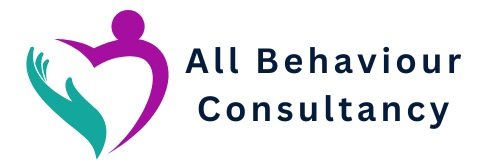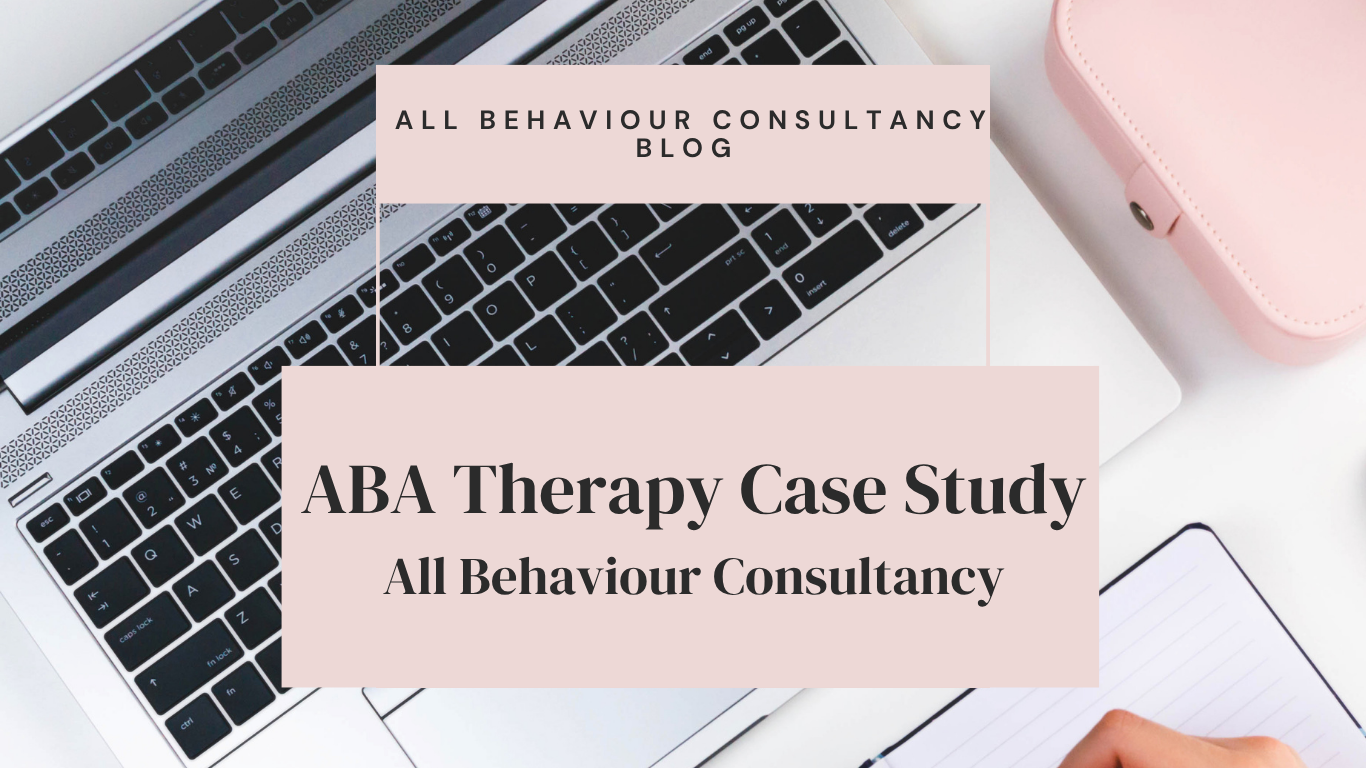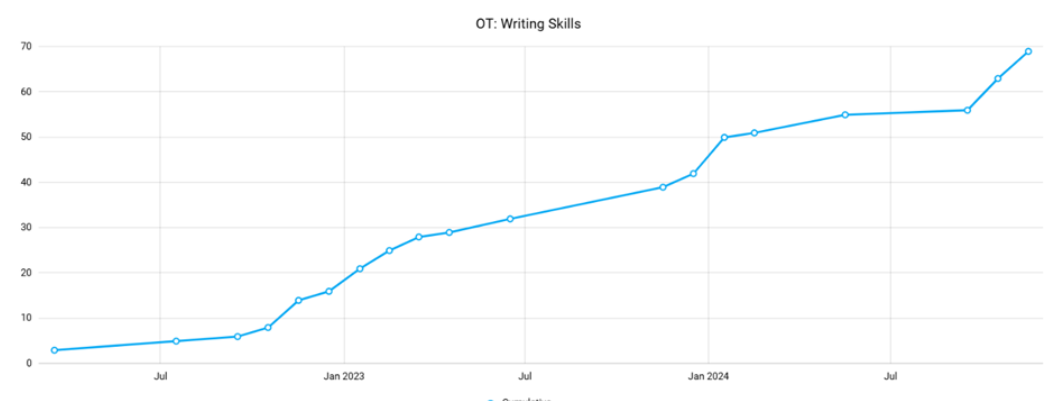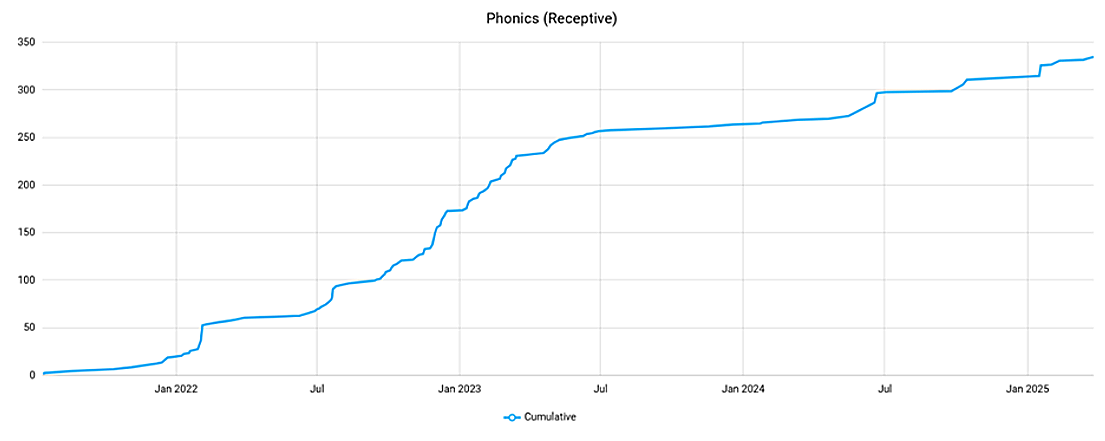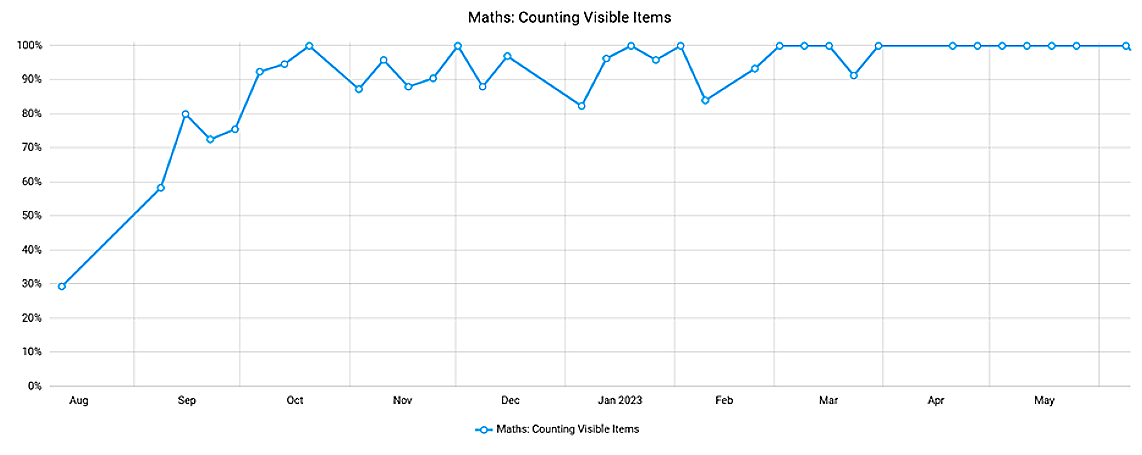ABA Therapy Case Study 🌱 A Real Story of Growth and Progress
Case studies share real-life examples of how personalised and compassionate ABA Therapy and Autism Behaviour Support can create long-lasting, meaningful changes in the lives of autistic individuals.
Behind every programme we deliver is a child, young person, or family working towards their own unique goals.
We don’t just focus on skills; we focus on confidence, well-being, independence, and thriving futures.
Each journey is different, but what unites them all is the progress made when the right strategies and ethical guidance come together.
At All Behaviour Consultancy (ABC), we are dedicated to empowering children, young people, and families through evidence-based, compassionate ABA support.
Every success story reminds us why we do what we do.
Take a look at this case study of one of our clients: an inspiring journey of growth, learning, and independence.
Case Study: Teaching Academic Skills (Child B)
Background
Child B, a 5-year-old boy with autism spectrum disorder (ASD), began his journey with ABC after scoring within the Level 2 range of the VB-MAPP (18–30 months).
At the start of his programme, Child B’s skills included:
Writing: Unable to independently form letters (only able to trace lines, though showed pencil control).
Reading: Recognised just 4 letters.
Maths: Recognised numbers 1–10, but unable to count items or match quantities to numbers.
His family wanted to see him thrive in core academic skills, while also gaining confidence and independence.
ABA Therapy Programme for Young Child
Our team provided early Autism support by desiging a tailored ABA programme using Discrete Trial Teaching (DTT), where skills were broken down into smaller, achievable steps and systematically taught with reinforcement.
We worked closely with both the family and school, collaborating with an Occupational Therapist (OT) to strengthen fine motor and writing skills.
Writing: Introduced the verbal rehearsal technique, gradually fading out assistance so Child B could form letters independently.
Reading: Integrated the school’s phonics curriculum, teaching both receptive and expressive letter identification, before progressing to blending and creating simple CVC words.
Maths: Applied the Teaching Early Numeracy to Children with Developmental Disabilities framework to build counting, matching, and early addition/subtraction skills.
Outcomes
Over time, Child B achieved remarkable progress:
Writing: Mastered all lowercase letters and numbers; progressed to independently spelling CVC words.
Reading: Gained mastery of all single letters and up to Level 3 in phonics (including 15 digraphs), enabling him to read, build, and write simple CVC and CVCC words.
Maths: Successfully counted items from 1–20 and was able to select specific quantities from larger groups—building the foundation for addition and subtraction.
In fact, across five years of ABA support, Child B mastered over 1,300 learning targets, a testament to his resilience and the consistency of the evidence-based ABA programme.
Visual Progress
Here are the cumulative number of mastered writing targets between January 2022 and November 2024:
The cumulative number of mastered reading targets (phonics, digraphs, CVC/CVCC words):
And this is the monthly maths success rate of counting visible items:
These graphs show the steady and meaningful progress Child B made with the support of our ABA team.
Early Support Matters
Every child learns differently. But the earlier you hire a Board-Certified ABA Consultant (BCBA) who offers personalised, compassionate support, progress is not only possible - it is transformative.
Child B’s journey shows that with early Autism support and structured ABA therapy, collaboration, and family involvement, autistic children can unlock their potential, achieving life-long skills that improve daily life whilst opening doors to future independence.
How All Behaviour Consultancy Can Help Your Family
At All Behaviour Consultancy, we provide:
Tailored ABA programmes for children, young people, and adults.
Collaboration with schools and professionals (occupational therapists, teachers, speech and language therapists).
Parent training and workshops, empowering families to embed strategies at home.
Flexible, compassionate support, whether you need intensive programmes or lighter-touch guidance.
Every success starts with one small step. Let ABC walk alongside you and your family.
📩 If you’d like to see how ABA therapy can help your child, get in touch today.
